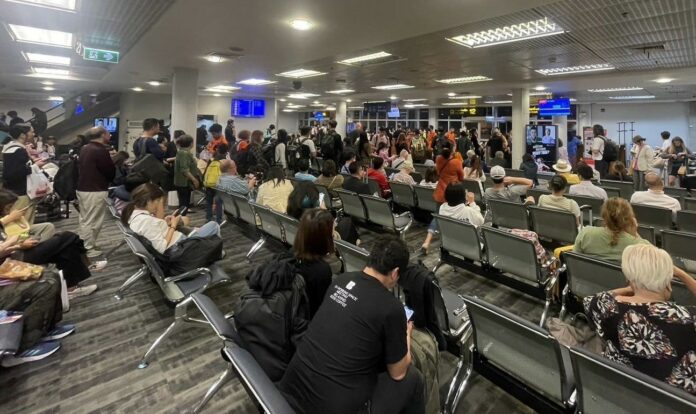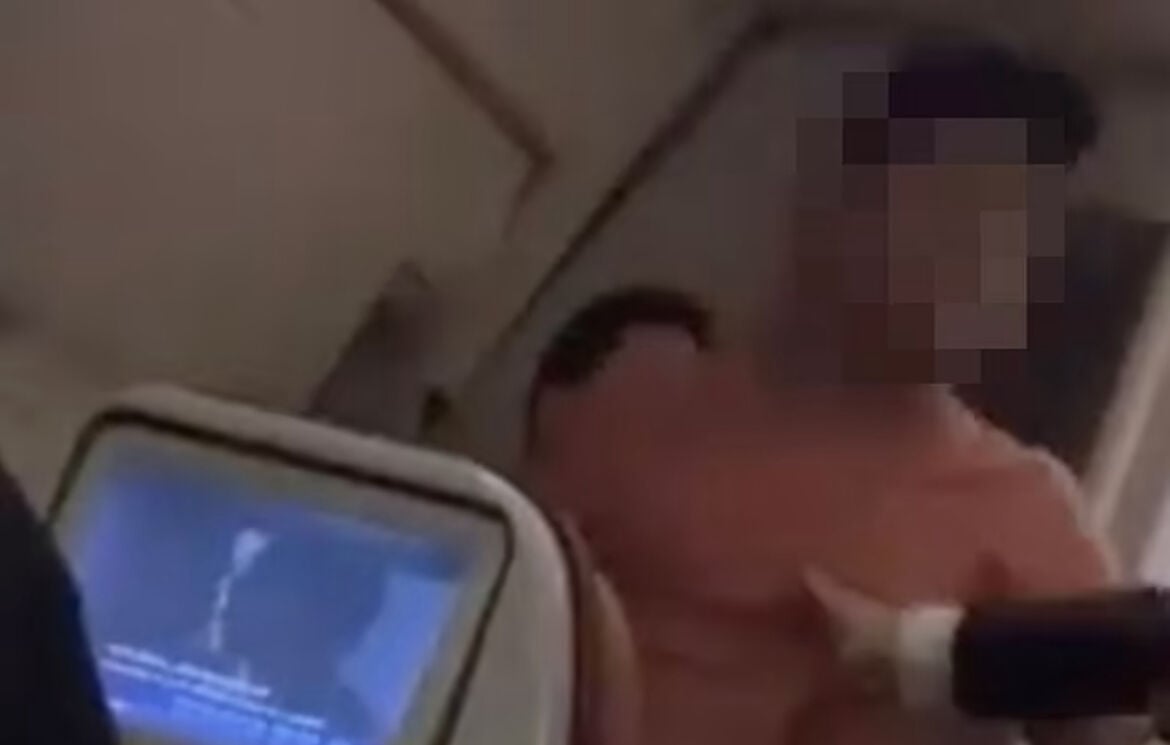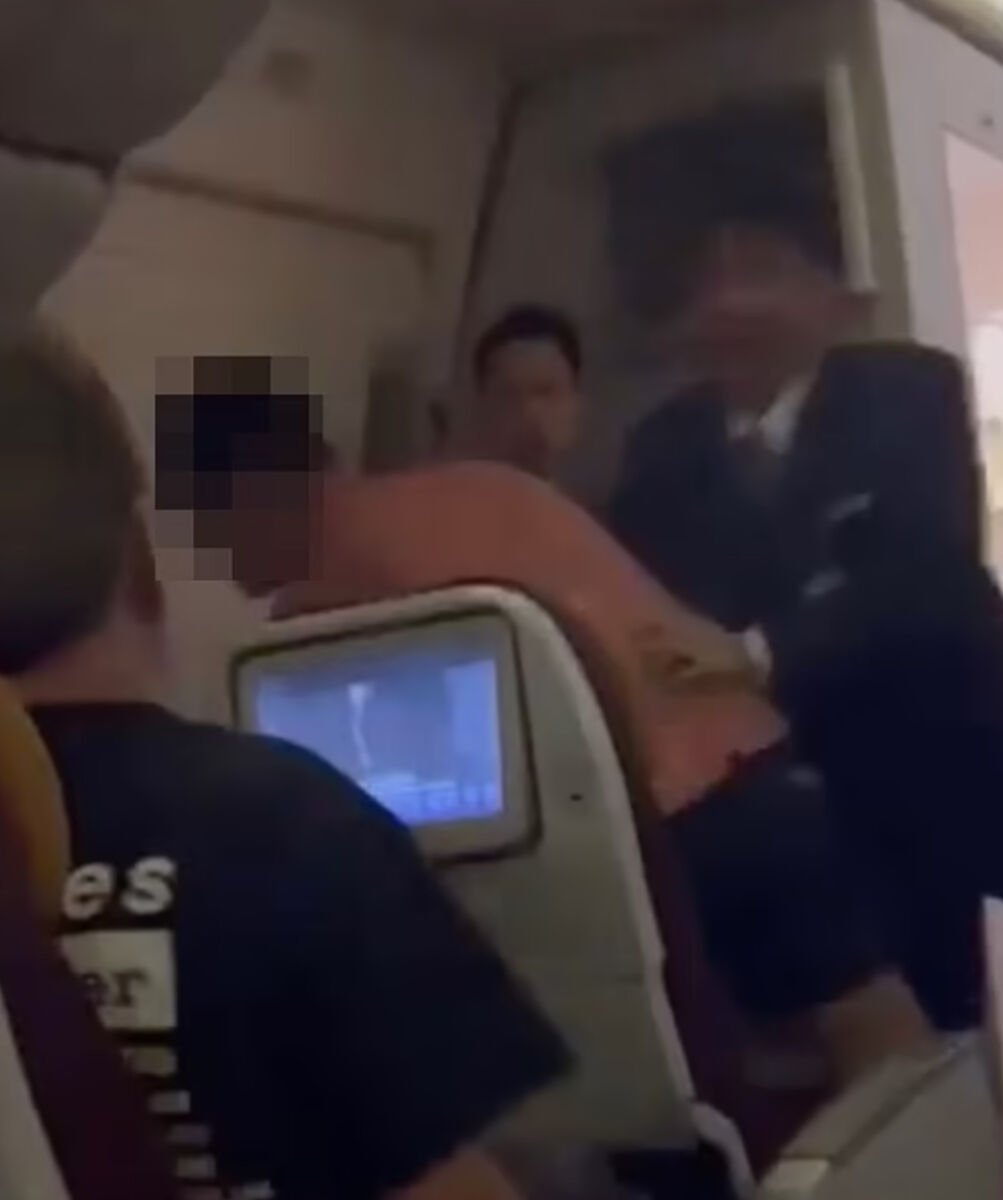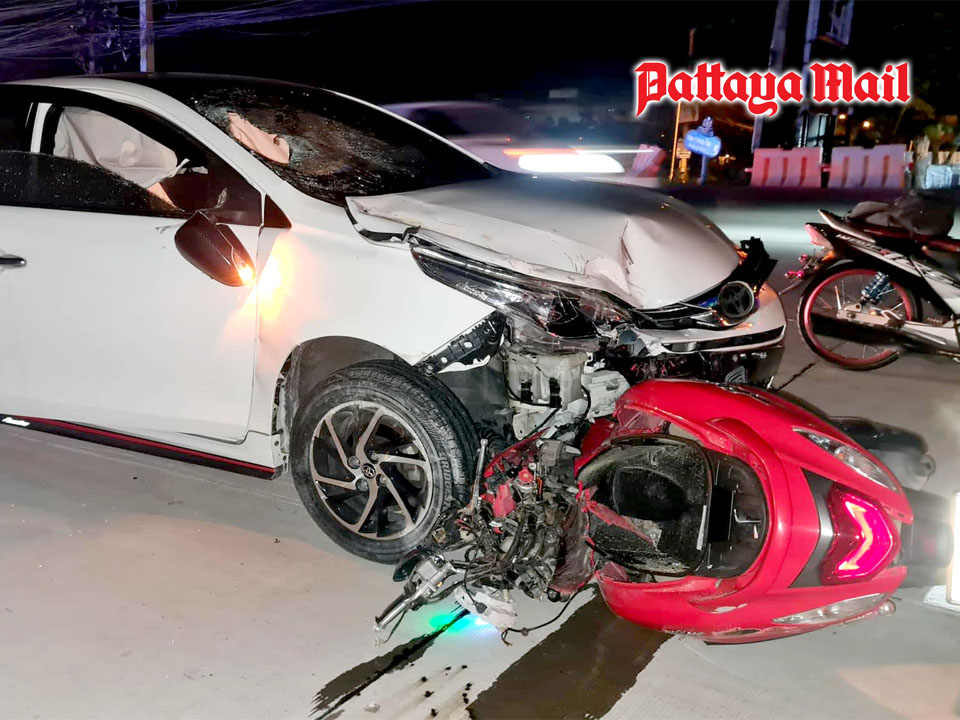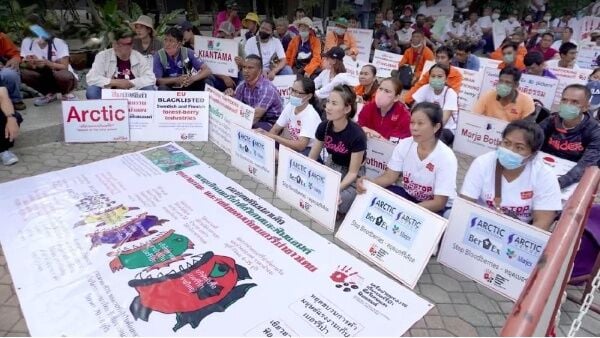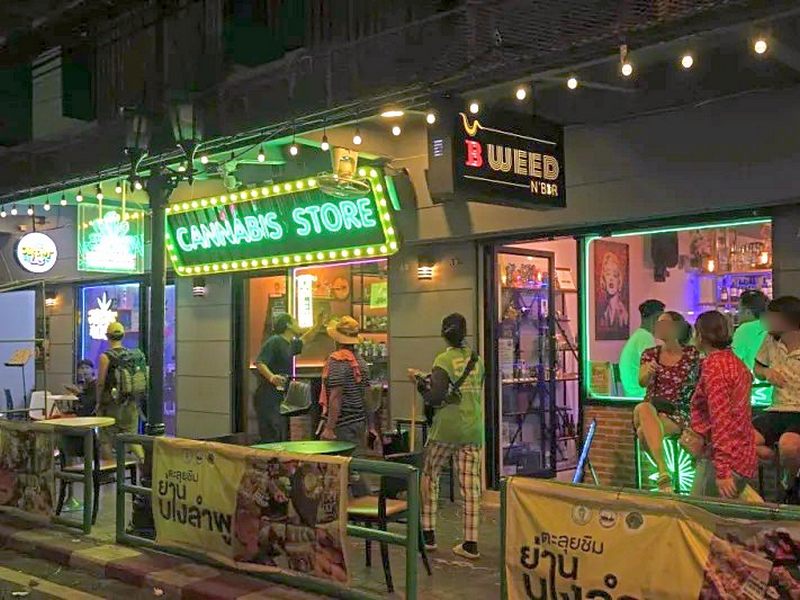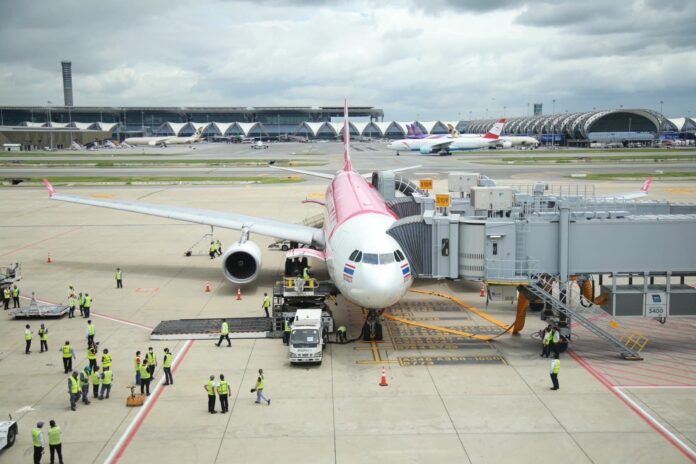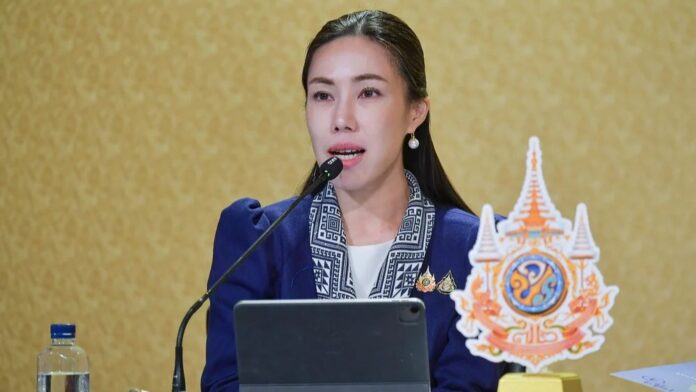
Traffic congestion outside the departure halls of Suvarnabhumi airport, where clusters of cars and taxis vie for parking spaces to drop off passengers, has become the norm for travellers starting their outgoing journeys from the biggest airport in the country.
For arrivals, long queues at immigration checkpoints and baggage claims have become expected, as broken kiosks and lack of staff have yet to be properly fixed.
IMPROVEMENT DEMANDED
In response to tourist complaints, Prime Minister Srettha Thavisin made an unannounced visit to Suvarnabhumi airport earlier this month, after which he instructed authorities to shorten required procedures at the airport to 30 minutes or less for each passenger.
Last month, Thailand tallied 3.03 million foreign visitors, an increase from 2.1 million year-on-year.
During the Chinese New Year holiday from Feb 5-11, all Thai airports reported a combined 872,235 arrivals, rising 13.3% from a week earlier, up 102,227 arrivals.
The post-pandemic tourism recovery has prompted international and local carriers to ramp up flight frequencies, aiming to reach full capacity as soon as possible to compensate for losses during Covid shutdowns.
However, staff shortages among airlines and airports globally have stalled growth.
Adoption of technology that might help mitigate the aviation labour shortage has been blunted, as some systems have proven unstable, while users often have a low level of technology proficiency in Thailand.
According to aviation IT provider SITA, by 2025 63% of airports and 51% of airlines globally were expected to have self-boarding gates, using biometrics only.
Some 53% of airports are anticipated to implement a secure single biometric token for all touchpoints by 2025.

below An influx of tourists crowds the arrivals hall at Suvarnabhumi airport this month. In January, Thailand recorded 3.03 million foreign arrivals, up from 2.1 million the same month of 2023. SOMCHAI POOMLARD
NEW TECH, NEW TAX
Airports of Thailand (AoT) announced last year it will increase passenger service charges at six international airports from April 1, 2024, which would be allocated via the new operating system called Common Use Passenger Processing Systems (Cupps).
The additional tax of 30 baht is embedded in ticket prices, meaning the new total service charge for passengers is 730 baht.
For people using Suvarnabhumi and Don Mueang airports, they might be familiar with checking in using self-check-in kiosks and self-service bag drops, which are part of Cupps.
The system is expected to reduce long queues at check-in counters, though some congestion during peak hours is inevitable.
In addition to AoT's six airports -- Suvarnabhumi, Don Mueang, Chiang Mai, Chiang Rai, Phuket and Hat Yai -- other airports under the Department of Airports will also implement a new levy, with Krabi airport adding a fee of 16 baht, while the remainder are determining an appropriate rate.
Santisuk Klongchaiya, chief executive of Thai AirAsia and SET-listed Asia Aviation, said the proportion of its passengers using self-service check-in at Don Mueang airport are 20-30% of the total.
As most passengers use their mobile phone or a website for online check-in before arrival at the airport, they can skip checking in, he said.
Though self-service bag-drop has not started at Don Mueang airport yet, the airport is not as congested as Suvarnabhumi, both for outbound and inbound passengers, as the physical structure and more compact size enable swifter operations as a secondary Bangkok hub.
As AoT tests the biometric technology for passenger validation, Mr Santisuk said Thai AirAsia is joining the test run.
Thai AirAsia plans to adopt this system once it is ready, while airlines and passengers should expect to jointly absorb these added operational costs, he said.
Mr Santisuk said automated ground handling services will become more crucial components for airports in the near future, particularly for those facing manpower shortages.
LABOUR SHORTAGE
Following the pandemic, busier air traffic resulted in higher operational costs for ground handling services at many airports, such as Hong Kong and Taiwan, he said.
Automated systems cannot totally replace the human workforce as aviation is a service industry, with people needed to troubleshoot.
"Rather than thinking automated systems will cause mass layoffs, we project these technologies will enhance passenger services and increase the efficiency of some operations, such as using artificial intelligence [AI] for back office work or predicting marketing or pricing trends more precisely," said Mr Santisuk.
Sumesh Patel, president for Asia-Pacific at SITA, said the company predicts the role of the workforce will evolve, rather than technology replacing workers.
He said automation will allow operations to be scaled, enabling a more agile workforce, with employees becoming more highly skilled, empowered decision-makers and taking on service-orientated roles.
A combination of highly skilled, flexible staff and agile cloud solutions supporting automation will ensure resilience across the industry, said Mr Patel.
The concept of flat business organisations at airports is gaining popularity thanks to the adoption of smart airport technologies that improve operational efficiency, he said.
These technologies use resource management systems, AI and machine learning to optimise scheduling and create a digital ecosystem that enhances communication across all ground operations, said Mr Patel.
By adopting a flat business structure, each employee's role is elevated, improving coordination and communication while eliminating excess management layers.
This approach leads to better decision-making processes and increased budget efficiency as there is less need for middle management, he said.

Tourists queue for check-in at the Passengers departures hall at Suvarnabhumi airport on January 3, 2024. Wichan Charoenkiatpakul
SLOW UPTAKE
Staff still serve the self-check-in kiosks and self-service bag drops at Suvarnabhumi airport to help passengers as the process is relatively new for some of them unfamiliar with the technology.
Nok Air chief executive Wutthiphum Jurangkool said tech adoption in Thailand is slow compared with airports in Europe and the US, as passengers take time to get used to the technologies in airports.
He estimates the settling in period could be 2-3 years.
Moreover, the physical structure of airports built years ago cannot fully embrace the benefits of some cutting-edge technologies.
Mr Patel said it is unavoidable for airports and airlines of all scales to adopt technology, as the pandemic led to rapid changes in the aviation industry.
He said the Great Resignation during the pandemic caused the industry to recruit new staff, and some have lower proficiency levels.
Mr Patel said based on SITA's experience digitalising the air transport industry -- before, during and after the pandemic -- the company saw common issues for highly cost-conscious regional airports that want to adopt smart digital operations, similar to larger airports.
For instance, cloud technology makes the digital journey and cutting-edge IT affordable and accessible for regional or budget-conscious airports, he said.
With leading passenger processing capabilities accessible via the cloud, airports hope to share common use approaches cost-effectively, saving on infrastructure, space and maintenance, said Mr Patel.
Airports can also add capabilities as needed, such as self-boarding, self-bag drop, off-airport processing, and more, he said.
